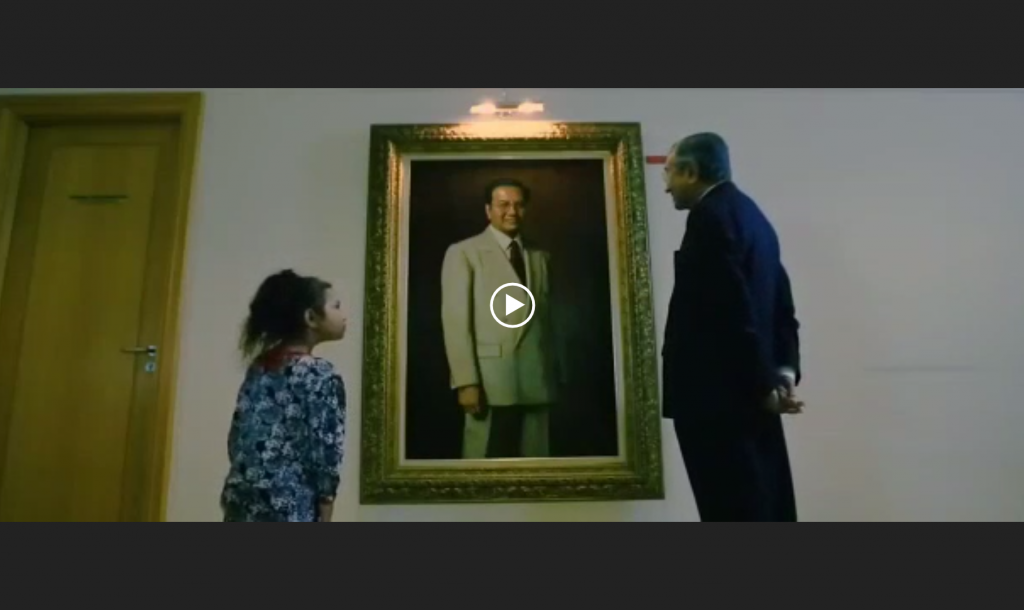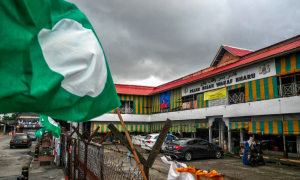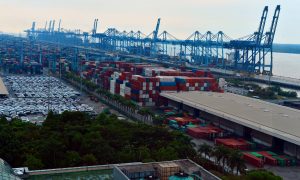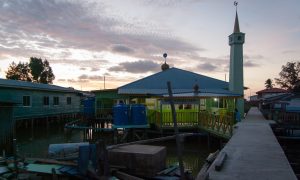Prior to the 13th general election (GE13), there was a sense of anticipation online. Najib Razak’s going to a full term before sending the country to the polls in 2013 didn’t diminish online attention. As a social media strategist, I was asked to raise the Parti Keadilan Rakyat’s (PKR) social media game. By extension, this mean meant improving the social media game of the then opposition leader Anwar Ibrahim.
For us in PKR, and for many Malaysians, GE13 was supposed to be the birth of the first non-UMNO led administration the country’s history. It was not a theoretical idea—it was a real expectation, and social media was the main campaign vehicle. Accordingly, the brief I was given was about urging change rather than directing change.
In hindsight, it doesn’t appear that there was ever any full mandate from any party member or leader, bar one: Anwar Ibrahim. ”His eminence” sat in charge of the fourth floor of PKR headquarters, Islamist-turned-BN-lynchpin-turned-BN’s-nemesis-in-jail-cell-turned-undefined maverick boss of the party.
To understand 2013’s campaign, we need to step back to 1999, three electronic elections ago. While there was seething anger across sections of the Malaysian community (not least among Muslims) following Anwar’s arrest in 1998, it was then just the dawn of the internet. The overwhelming victory of the first Mahathir–Anwar ticket in 1995 was a distant memory, as UMNO—the power core of BN—split, reducing the oft-maligned prime minister’s sense of impregnability. Unfortunately for his opponents, the web in Malaysia was limited to slow-loading single HTML pages. BN won, but but only just.
At GE11 in 2004, the internet as a means of revolution was still weak. Anwar’s extended stay in Sungai Buloh, PKR’s (then Keadilan’s) struggles with leadership teething issues, and the PAS–DAP Islamic State row combined to aid PM Abdullah Badawi’s landslide victory, topping even the 1995 result. BN were justified in assuming that 1999 and 2004 represented the natural ups and downs of politics, and that the internet was just a fad that wouldn’t threaten actual politics which was powered, they thought, by mainstream media.
They were wrong. In 2008 they got bruised, and lost their two-thirds majority in parliament. The internet in Malaysian terms had matured, and social media arose with the advent of both smartphones and Facebook.
The opposition’s confidence surged, and GE13 was set up to cap off the new Anwar renaissance. Yet the organic nature of social media was both boon and bane in 2013’s campaign. This was illustrated by the proliferation of various cybertrooper organisations aligned to PKR (such as Jingga 13), and the efforts of individual politicians. (For instance, the popularity of Anwar’s personal Facebook, Twitter and website dwarfed that of the equivalent party pages.) More importantly, these social media accounts were managed by various agents and each was financed differently; enforcing a singular message would be difficult. It was a crowded field without process or structure, and those agents were willing to accept process or structure to be forced upon them.
It was decided that PKR HQ would reinvigorate the flagging Demirakyat brand—across Facebook, website, Twitter and YouTube—and work with every other social media player willing to forward the Pakatan Harapan agenda. In the end, Demirakyat reached millions daily in the week before and after elections.
New tech and old loyalties mash up a historic contest
The resurgence of ‘old’ Mahathir against the Najib coalition has been matched with the ‘new’, the cheap smartphone.
In the end, it became an effort to present a multitude of individual efforts augmenting the official party’s outputs as a planned, structured and granular endeavour to win as many votes as possible—which Pakatan did, winning the popular vote decisively.
Who is faring better online so far in this year’s campaign? I am no longer their social media strategist, but I can offer up some observations.
This time around, there are worrying signs for the opposition with regard to social media. Topping the list is Barisan Nasional’s matured online campaign. BN spent ample funds on their 2013 online campaign but they didn’t do it right, as they assumed online success was merely a function of spending. Now they are matching their resources with an attention to detail, shifting the tone of the content to include humour to appeal to and deflect, rather than preach to or guilt-trip, viewers. The missteps are also missing. BN are primarily fashioning online content as they would their traditional content directed to the people through TV, radio and newspapers. It’s marked by flashier campaign material, and they easily edge out Pakatan because they can pay for high quality productions.
BN have reined in their vitriol online, and leave it to the mainstream media—which belong to them—to serve up this staple, which has served them well with the digitally-divided.
At the same time, social media has promoted rather than negated identity politics. News consumption now emanates from those platforms rather than merely complementing news websites. It is not that people are not reading online news anymore, it is that they are reading the online news their peers—family, neighbours and friends—are prioritising.
If the absence of a communal sense of reality was rife in Malaysia, it has only grown more so as timelines feed voters more of what would keep them interested. As online consumption sidelines the ability to challenge views, it’s all about identity politics in this space currently. It’s grim, and that’s even before we examine Pakatan’s inventory for this election.
“Cybertroopers” have dropped from the lexicon of both sides this election. BN has realised the limited utility of online anger, and how the isolating effects of social media algorithms direct divisive propaganda to shrunken echo chambers. If in the noughties individual bloggers were sifu just by being present, in the decade since all individualists were useful warriors. However, today, a willingness to be online in itself is not valuable. Cybertroopers are by definition aggressive and lurk in spots, but in the larger picture they lack gravitas due to attacking language and the crassness they have always adopted. Parties are now better off gathering social influencers rather than cybertroopers, who are halfway between hackers and the socially awkward who stay behind screens. It is about social influencers and the ”instafamous” today.
How then for Pakatan to succeed in GE14, if BN’s on the up, social media panders to your base, and the relevance of cybertroopers from either side is diminished?
The answer is better messaging, of course. But there is less good news here too. Social media is unwieldy as it stands, and it becomes doubly hard when there is no central messaging in the PKR fold. The piecemeal, ”let’s take it day to day” approach has the makings of a faulty campaign. Bersatu, Mahathir’s party, has released several emotive videos which centre on the godfather rather than the party, but which nevertheless have appeal to their base.
DAP have, like the Tony Pua video, gone with running down the administration, which has a limited appeal and equally has the ability to turn off Muslims.
PKR is expected to produce the content with cross-cutting appeal befitting its status as the party of the masses, with its logo being the sole identifier this GE. But in this regard it has been abysmal so far. One good PKR video will be passed along all the channels far better than any BN video, but it has not been forthcoming.
Public sympathy is with the opposition parties—even with sworn-neutral voters—but Pakatan as a whole is not capitalising on it. There has to be more in the way of narrating through their channels a broader story which emboldens the population to follow suit.
For now, Pakatan’s social media campaign is about reacting rather than leading. And they are up against it in GE14 with a much better organised BN than they’ve faced before.
 Facebook
Facebook  Twitter
Twitter  Soundcloud
Soundcloud  Youtube
Youtube  Rss
Rss 



